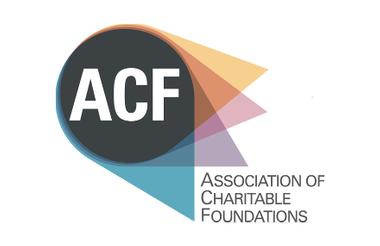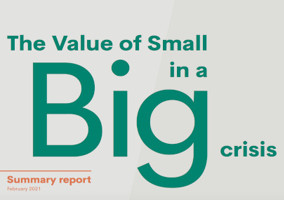Smaller foundations have an advantage in pursuing ambitious practice because they can be more agile, a new report finds.
Today the Association of Charitable Foundations (ACF) published 10 Pillars of Stronger Practice, which outlines 10 suggestions for chairs and trustees of small foundations to implement better practice.
The report is the latest instalment in ACF’s Stronger Foundations initiative, which launched in 2018 with the aim of helping charitable foundations identify and initiate better practice.
Though smaller foundations are constrained by limited resources, capacity and time, the ACF’s new report finds they are well-placed to pursue ambitious and effective practices in comparison to larger foundations.
In part, this is because they can afford to be more agile in decision-making, are better connected to local communities, leaner in their bureaucracy and are able to “stick or twist” with objectives more flexibly.
Small charities comprised 96% of the UK charity sector in 2017-18. ACF reported that more than a third of its members have an annual expenditure on grants below £250,000 and half give less than £500,000.
The report reads: “ACF’s Stronger Foundations initiative has found excellent and ambitious practice in every kind of foundation – from the largest and most well-resourced to the very smallest. The contribution of smaller foundations and their grantmaking is of enormous importance to civil society, and their individual and collective impact on people, places and causes is invaluable.”
ACF’s chief executive, Carol Mack, said: “Smaller foundations are the lifeblood of our sector – their commitment and creativity is truly inspiring. As this report brings out so clearly, it is a complete myth that foundations need lots of staff and resources to make a difference to the communities and causes that they care about.”
The 10 pillars of stronger practice for smaller foundations are:
- Understands its mission and the impact it is seeking to achieve.
- Thinks collaboratively to pursue impact and advance its learning.
- Identifies and selects funding practices that are most likely to fulfil its mission and designs its processes in accordance with its values.
- Seeks to achieve positive impact beyond a financial contribution.
- Is aware of the external context and its role in the wider ecosystem.
- Continually strengthens its governance, including its diversity.
- Invests time and resources in understanding and defining diversity, equity, and inclusion.
- Makes itself accountable to those it serves and supports.
- Understands that responsibility for its investments sits with each and every member of the trustee board.
- Understands the importance of transparency and engagement, and articulates its approach.
Hazel Capper, from St Giles & St George, and Johanna Tompsett, SYP Trust, who are co-convenors of ACF’s smaller funders network, said: “We believe this will be a valuable resource for smaller foundations and look forward to sharing it with members of our network.”
Related articles












